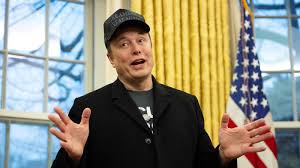In recent weeks, discussions surrounding the potential issuance of $5,000 stimulus checks, dubbed “DOGE Dividends,” have captured national attention. This proposal suggests distributing a portion of the savings from the Department of Government Efficiency (DOGE) directly to American taxpayers. While the idea has sparked debates at the federal level, Wisconsin lawmakers have expressed varied perspectives on its feasibility and desirability.
The Genesis of the DOGE Dividend Proposal
The concept of the DOGE Dividend emerged from investment manager James Fishback, who proposed that 20% of the savings achieved by DOGE be returned to taxpayers in the form of direct payments. This initiative gained momentum when Elon Musk, head of DOGE, indicated on social media that he would discuss the idea with President Donald Trump. Subsequently, President Trump acknowledged the proposal, stating it was “under consideration” to allocate a portion of DOGE’s savings directly to citizens.
Fishback’s plan is predicated on DOGE achieving $2 trillion in savings, which would result in one-time payments of approximately $5,000 to net federal income taxpayers, estimated to encompass around 79 million households. However, this ambitious savings target has been met with skepticism, as DOGE’s initial month reported $55 billion in savings, necessitating a significant increase to meet the proposed goal.
Wisconsin Lawmakers Weigh In
Within Wisconsin, reactions to the DOGE Dividend proposal have been mixed, reflecting broader national sentiments. Senator Ron Johnson expressed reservations, emphasizing fiscal responsibility over direct payments. He stated that while he would be “happy” to consider the idea, priority should be given to balancing the budget and reducing national debt. Johnson elaborated, “The first use of that money needs to actually be reducing spending, so we can have a balanced budget, so Americans can keep their hard-earned dollars.”
On the other hand, some Wisconsin legislators see potential benefits in the proposal. Representative Dora Drake highlighted the growing interest in cryptocurrency and blockchain technologies within the state. She noted that lawmakers are exploring new legislation to help business owners capitalize on these emerging opportunities.
Challenges and Considerations
The implementation of the DOGE Dividend faces several hurdles. Firstly, achieving the projected $2 trillion in savings appears ambitious, given the current pace of DOGE’s cost-cutting measures. Ernie Tedeschi, economics director of the Budget Lab at Yale University, pointed out that the size of the proposed checks is disproportionate to the current savings, stating, “The size of the checks is out of proportion with the size of cuts.”
Politically, the proposal would require Congressional approval, a process that promises rigorous debate. While some lawmakers advocate for using any potential savings to reduce the national debt, others propose alternative allocations, such as funding child tax credits. Senator Josh Hawley suggested directing relief towards families, emphasizing the financial burdens faced by households with multiple children.
Moreover, the proposal has encountered opposition from Democratic lawmakers, who criticize DOGE’s broader initiatives as detrimental to public services. Senator Chris Murphy described DOGE as a strategy that “is all a pretty simple effort to steal from regular people to enrich the very wealthy.”
Implications for Wisconsin Residents
For residents of Wisconsin, the prospect of receiving DOGE Dividends remains uncertain. The state’s existing regulatory framework, particularly Chapter 217, known as the “Sellers of Checks” law, does not currently encompass virtual currencies. This regulatory gap raises questions about the state’s readiness to manage and distribute such payments, should the federal proposal advance.
Additionally, the hypothetical DOGE stimulus checks would rely on substantial reductions in federal workforce and government spending, measures that could have far-reaching economic implications.
Conclusion
The DOGE Dividend proposal has ignited a multifaceted debate among Wisconsin lawmakers and their constituents. While the allure of direct payments is evident, concerns about fiscal responsibility, economic feasibility, and political viability persist. As discussions continue at both state and federal levels, the future of the DOGE Dividend remains uncertain, leaving Wisconsin residents to watch closely as the situation unfolds.
Disclaimer – Our team has carefully fact-checked this article to make sure it’s accurate and free from any misinformation. We’re dedicated to keeping our content honest and reliable for our readers.




